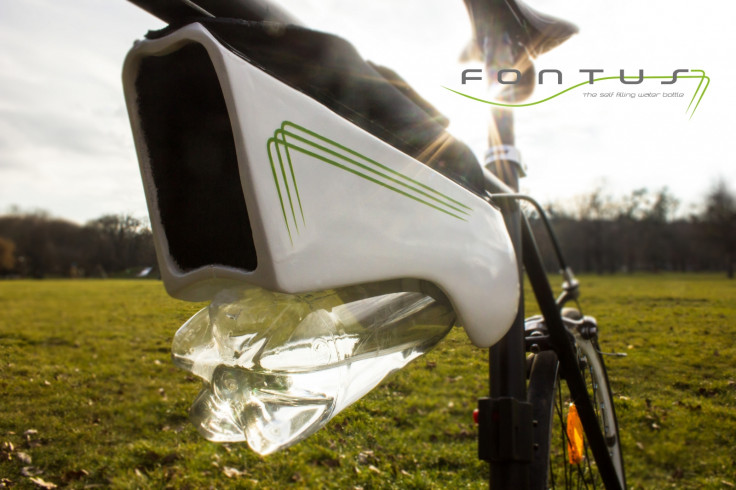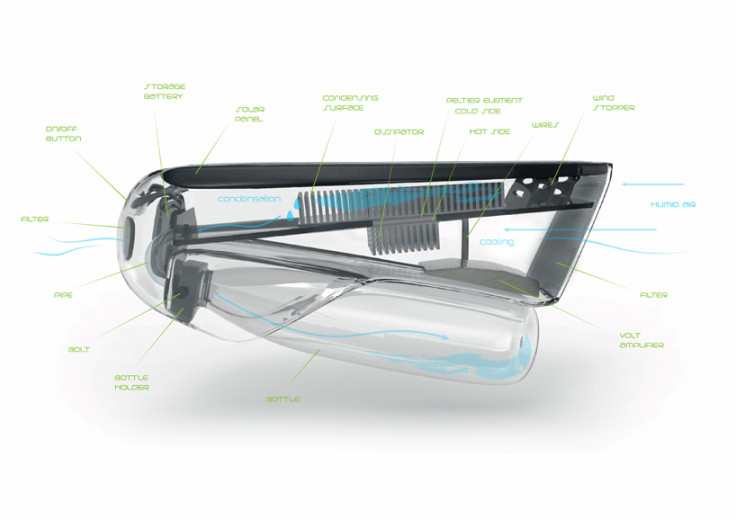This Self-Filling Water Bottle Invention Can Turn Air Humidity into Drinking Water

An Austrian industrial design student has invented a water bottle that fills itself during cycling journeys by converting humidity in the air into safe drinking water.
The Fontus system was developed by Kristof Retezár, an industrial design student at the University of Applied Arts in Vienna.
Designed to be attached to a bicycle frame, Fontus consists of a condenser unit powered by a solar panel that is attached to a bottle.
When the bike is in motion, moist air is blown into a channel in the condenser unit where it cools and condenses.
The water droplets then roll into the water bottle, and at present the prototype is able to produce a drop of water a minute in air that features approximately 50% humidity at temperatures of at least 20˚C (68˚F).
Although this is still quite slow, Retezár reckons that in places with a much greater humidity than his native Vienna where the prototype was tested, the Fontus system will be able to collect 500ml of water within half an hour.

At the moment, the system comes with a filter over the condenser unit which stops insects and dirt particles from being sucked in, but the filter is not strong enough to remove pollutants yet, so for now, the system is best used by people cycling through the open countryside rather than in an urban environment.
Retezár's prototype, which costs $25-$40 (£16-£25), has a way to go before it can be used by the general public, but the technology used could potentially save many lives.
According to the UN, there are currently over 2 billion people in 40 countries who deal with water scarcity, and it is feared that by 2030, at least 47% of the world's population will be living in areas of high water stress.
"The Earth's atmosphere contains around 13,000 cubic kilometres of mostly unexploited freshwater. This project is an attempt to discover these resources," Retezár writes on his Dyson Awards project page.
"My goal was to create a small, compact and self-sufficient device able to absorb humid air, separate water molecules from air molecules and store water in liquid form in a bottle."
© Copyright IBTimes 2025. All rights reserved.






















